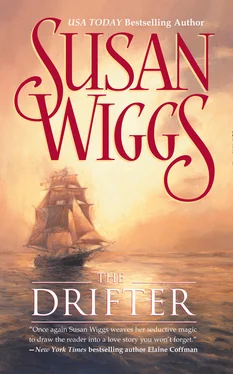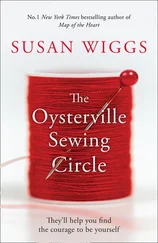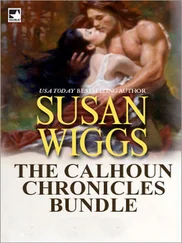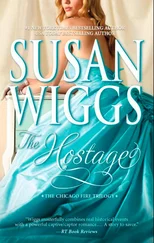But since you are determined to become my partner in the practice when you complete your medical studies, I feel I owe you an unvarnished picture of what a physician’s life is truly like.
Sometimes we are called upon to treat cases against our will. Such was the circumstance around three o’clock this morning when a man abducted me at gunpoint.
Somehow I managed to keep my wits about me. The scoundrel forced me aboard his ship to treat his ailing wife, who is with child. His intention was to sail away with me aboard so that I could tend to the unfortunate woman.
Naturally, such a criminal had no care whatever for my other patients and would not listen to reason, so I took matters into my own hands. When he locked me in a stateroom with his wife, I used a scalpel to slice through a rope, thus disabling the steering and stopping our departure. After the mishap, my abductor burst into the stateroom, roaring with fury and actually threatening to use me as an anchor.
He is an uncommonly large man, broad of shoulder, with a lean and dangerous face and terrible eyes, but I refused to flinch. In my travels through the untamed West, I learned early to hide my fear. Thanks to my late father and his constant schemes and intrigues, I am no stranger to gunfighters and bullies. In my heart I knew my abductor would not harm me because I have something he needs—my skills as a physician. It is a great virtue to be needed. Greater, even, than being liked. For of course, the outlaw does not like me at all. But he needs me. And this prevented him from shooting me on the spot.
Instead, cursing so profusely I swear the air turned blue, he anchored his broken ship and together we bundled his wife into a dinghy. By sunup, we had her in a proper bed here at the boardinghouse in the main overnight guest room. Though her condition is still grave, I know she has a better chance to recover here. As for the husband, I can only wonder what sort of life it took to mold a man into such a hard-edged desperado.
Hoping I’ve not frightened you away from joining me upon completion of your ward studies, I remain as always,
Leah Jane Mundy, M.D.
Leah rolled a velvet-wrapped blotter over the page to soak up the excess ink. The heavy-barreled roller with its engraved pewter handle reminded her of earlier times.
She would have sold the ink blotter along with everything else if she could have gotten a decent price for it. But it was old and battered, and the initials stamped into the handle had meaning only to her.
G.M.M.
Graciela Maria Mundy. The mother Leah had never known.
A wave of sentiment washed over her as it often did when she was fatigued. She had no memory of her mother, but she felt a tearing loss all the same. Or more accurately, an emptiness. The absence of something vital.
Although it seemed nonsensical, she had an uncanny feeling that if only her mother had lived through childbirth, she would have taught Leah the things textbooks couldn’t explain—how to open her heart to other people, how to live life in the middle of things rather than outside looking in, how to love.
She stared at her face in the barrel of the blotter. Her features had the potential to look exotic, owing to her mother’s Latino heritage. But Leah worked hard to appear ordinary, choosing the plainest of clothing and scraping her hair well out of the way into a bun or single braid. She could do nothing to change her eyes, though. They were large and haunted, the eyes of a woman who knew someone had taken a piece of her away, and she’d never gotten it back.
Regaining a firm grip on her emotions, she thrust the blotter into a drawer, folded the letter precisely into thirds, and sealed it with a blob of red wax. “Work hard, Penny,” she murmured under her breath. “I shall be glad to have your company soon.”
She and Penelope Lake had never met face-to-face. Leah had contacted Johns Hopkins Medical College, newly founded the year before. The college had opened its doors to women from the very start, so Leah had asked to sponsor a promising young female medical student. Her father had sworn he wouldn’t tolerate yet another woman in the practice.
In a rare act of defiance, Leah had persisted. She’d been put in touch with Miss Penelope Lake of Baltimore, who showed signs of becoming a gifted physician and who was interested in moving west. Away, as she hinted in her letters, from the cramped confines of settled society.
The correspondence grew surprisingly warm and intimate. Leah could well imagine Penny’s world because long ago Leah had once been a part of it—cavernous homes like mausoleums, grim social visits, mannered conversations that went nowhere. And always, always, the unspoken expectation that any woman of worth would concern herself with home and family, not a profession.
Leah and Penelope Lake seemed to be kindred spirits. Why was it so easy to write openly to Penny, Leah wondered, when she was so guarded with the people she saw every day? She lived in a busy boardinghouse filled with interesting people, yet she could find no true friend among them. Even Sophie, her assistant, maintained a cordial distance. Leah wondered if it was simply her destiny to be alone in a crowd; never to know the easy familiarity of a close friendship or the quiet comfort of a family.
Even less likely was the possibility of intimacy with a man. Her father, always formal, demanding and distant, had made such a thing seem impossible. That was his legacy. With his pride, his expectations and his tragic shortcomings, he had left her as a creature half-formed. He had taught her that appearances were everything. He’d never shown her how to dive beneath the surface to create a rich inner life. Some parents crippled their children by beating and berating them. Edward Mundy was far more subtle, molding Leah’s character with undermining phrases that slipped in unnoticed, then festered into wounds that would never heal. He sabotaged her self-confidence and he limited her dreams.
“What a charming frock,” he used to say to her when she was small. “Now, do you suppose Mrs. Trotter would fix that unruly hair in order to do the dress justice?”
And later, when she was a schoolgirl: “There are a hundred ways to be mistaken, but only one way to be right. You have your mother’s looks and—alas—her contempt for conventional wisdom.”
When she became a young lady and a social failure, he had said, “If you cannot attract a decent husband, I shall permit you to assist me in my practice.”
By the time she recognized the harm he’d done her, it was too late to repair the damage. But he was gone now, and maybe she could find a way to move out from under his shadow. Maybe the world would open up for her.
“It’s not fair for me to pin so much hope on you, Penny,” Leah said, shaking off her thoughts.
She placed the letter to Penelope Anne Lake on a wooden desk tray, then checked her register. Mrs. Petty-grove had sent her houseboy with a list of the usual complaints, all of them imaginary, all treatable with a cup of Sophie’s mild herb tea and a bit of conversation. The Ebey lad, the one who had been kicked by a horse, had passed a quiet night.
Unlike Leah. Her own head throbbed—not from an iron-shod hoof, but from a man with an iron will.
And the most frightening eyes she had ever seen.
Just the thought of those hard gray eyes brought her to her feet. Restlessly, she paced the surgery, scanning the bookshelves and the framed certificates hanging on the walls, trying to construct her day in some sort of orderly fashion. But the extraordinary night she’d passed destroyed her concentration.
Memories of the man’s bleak gaze troubled her as she stopped at the coat tree behind the door and put on a white muslin smock. The garment had been laundered and starched and fiercely pressed by Iona, the deaf-mute girl abandoned by her parents three years earlier.
Читать дальше












